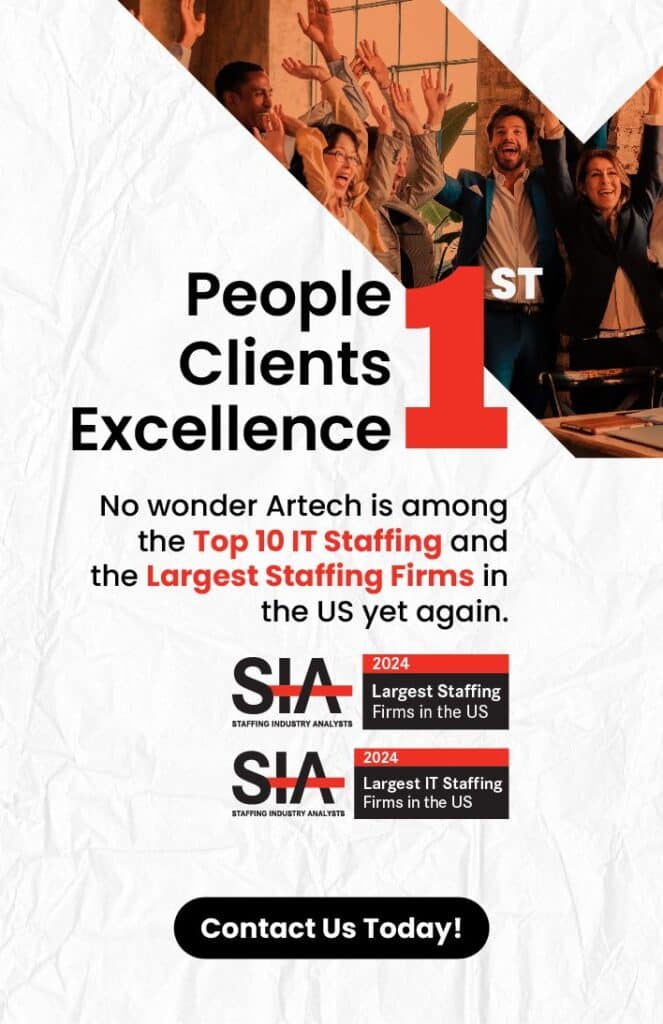
In today’s fast-paced, ever-evolving business landscape, companies are constantly on the lookout for innovative strategies to attract top-tier talent. Enter Recruitment Process Outsourcing (RPO), a game-changer in the world of talent acquisition. But what exactly is recruitment process outsourcing, and why has it become such a buzzword in the HR industry? As businesses face mounting pressure to optimize their recruitment efforts while maintaining cost efficiency, many have turned to RPO as a solution.
RPO involves outsourcing all or part of a company’s recruitment processes to an external provider. This not only allows organizations to leverage specialized expertise but also ensures scalability and flexibility in hiring. But the world of recruitment is constantly changing, and so is the landscape of RPO. To stay ahead, companies must stay attuned to the latest trends shaping this industry. From technology integration to a renewed focus on diversity and inclusion, the RPO landscape is undergoing significant shifts. In this blog, we’ll dive deep into these emerging trends in recruitment process outsourcing, offering insights on how businesses can navigate this dynamic environment to remain competitive.
Latest Trends in Recruitment Process Outsourcing
1. Technology Integration
Technology is no longer just a support function in recruitment—it’s at the heart of RPO trends, driving innovations that are reshaping how companies attract, assess, and onboard talent.
- Artificial Intelligence and Automation
One of the most significant trends in recruitment process outsourcing is the integration of artificial intelligence (AI) and automation. These technologies have revolutionized the way recruitment functions, enabling RPO providers to streamline processes, reduce time-to-hire, and enhance the quality of hires. AI-powered tools can screen thousands of resumes in a fraction of the time it would take a human recruiter, identifying the best candidates based on predefined criteria. Automation, on the other hand, can handle repetitive tasks such as scheduling interviews and sending follow-up emails, freeing up recruiters to focus on more strategic activities.
But AI and automation go beyond mere efficiency. They also play a crucial role in minimizing biases in the recruitment process. By relying on data rather than human judgment, these technologies can help ensure a fairer, more objective hiring process—an increasingly important consideration in today’s diverse workforce.
- Data Analytics and Predictive Hiring
Data analytics has emerged as another critical trend in recruitment process outsourcing. RPO providers are increasingly using data-driven insights to optimize recruitment strategies and make more informed decisions. Through the analysis of vast amounts of data, RPO providers can identify patterns and trends that would otherwise go unnoticed, enabling them to predict future hiring needs, assess candidate fit more accurately, and even forecast potential employee turnover.
Predictive hiring, a subset of data analytics, is particularly noteworthy. By leveraging historical data and machine learning algorithms, RPO providers can predict the likelihood of a candidate’s success in each role. This not only improves the quality of hires but also reduces the risk of turnover, ensuring that organizations find and retain the right talent for the long haul.
- Applicant Tracking Systems (ATS)
Applicant Tracking Systems (ATS) have become a staple in the recruitment process outsourcing industry. These systems offer a centralized platform for managing the entire recruitment process, from posting job openings to tracking candidate progress and analyzing recruitment metrics. The latest ATS platforms are equipped with advanced features such as AI-driven resume parsing, automated interview scheduling, and real-time analytics dashboards, making them indispensable tools for RPO providers.
One of the key benefits of ATS is its ability to enhance candidate experience—a critical factor in today’s competitive job market. By automating administrative tasks and providing a seamless, user-friendly interface, ATS platforms ensure that candidates have a positive experience from start to finish, which can significantly impact an organization’s employer brand.
2. Candidate Experience
In the modern recruitment landscape, candidate experience is paramount. As the war for talent intensifies, RPO trends are increasingly focused on creating personalized, engaging experiences for candidates throughout the recruitment process.
- Personalized Candidate Interactions
Gone are the days of one-size-fits-all recruitment strategies. Today, candidates expect a personalized experience that caters to their unique needs and preferences. This has led to the rise of personalized candidate interactions as a key trend in recruitment process outsourcing. RPO providers are leveraging AI and data analytics to tailor communications, job recommendations, and even interview questions to each candidate’s profile. This level of personalization not only improves candidate engagement but also increases the likelihood of successful hires.
For instance, AI-driven chatbots can provide real-time, personalized responses to candidate inquiries, offering a more interactive and satisfying experience. Additionally, RPO providers are using data to send targeted job alerts to candidates based on their skills, experience, and career goals, ensuring that they receive relevant opportunities that align with their aspirations.
- Improved Communication Channels
Effective communication is at the heart of a positive candidate experience. As part of the latest RPO trends, RPO providers are investing in enhanced communication channels to ensure that candidates receive timely, clear, and consistent information throughout the recruitment process. From automated email updates to SMS notifications and even video conferencing tools, these communication channels help keep candidates informed and engaged at every stage.
Moreover, many RPO providers are integrating social media platforms into their communication strategies. This allows them to reach candidates on their preferred channels and engage with them in real-time, fostering a more transparent and accessible recruitment process.
- Virtual Reality (VR) for Recruitment
Virtual Reality (VR) is making waves in the recruitment process outsourcing industry as an innovative tool for candidate engagement and assessment. VR allows candidates to immerse themselves in realistic job simulations, providing a unique, hands-on experience that goes beyond traditional interviews. This not only gives candidates a better understanding of the role but also allows employers to assess how candidates perform in real-world scenarios.
For example, a company hiring for a technical position might use VR to simulate a challenging task that the candidate would encounter on the job. This not only tests the candidate’s skills but also gives them a taste of what it would be like to work in that environment, leading to more informed hiring decisions on both sides.
3. Flexible and Remote Work
The rise of flexible and remote work has had a profound impact on Recruitment Process Outsourcing. As more companies embrace these work arrangements, RPO providers are adapting their strategies to meet the changing needs of employers and candidates alike.
- Remote Hiring Practices
Remote work has become a permanent fixture in the modern workforce, and Recruitment Process Outsourcing is no exception. RPO providers are increasingly focusing on remote hiring practices to help companies access a global talent pool and find the best candidates, regardless of location. This trend has been accelerated by the COVID-19 pandemic, which forced many companies to adopt remote work out of necessity. However, the benefits of remote hiring—such as increased flexibility, reduced overhead costs, and access to a wider talent pool—have ensured that it remains a key component of RPO strategies moving forward.
To support remote hiring, RPO providers are leveraging a range of digital tools, including video conferencing platforms, online assessment tools, and digital onboarding solutions. These technologies enable RPO providers to manage the entire recruitment process remotely, from initial candidate screening to final interviews and onboarding, ensuring a seamless experience for both employers and candidates.
- Global Talent Pool Access
One of the most significant advantages of remote work is the ability to tap into a global talent pool. This has become a major trend in recruitment process outsourcing, as companies seek to diversify their workforce and bring in talent from around the world. RPO providers are playing a crucial role in this process by leveraging their global networks and expertise to identify and attract top talent from different regions.
Access to a global talent pool not only allows companies to find candidates with specialized skills that may be scarce in their local markets but also promotes diversity and inclusion within the organization. By embracing this trend, businesses can build a more dynamic and innovative workforce that is better equipped to navigate the challenges of a globalized economy.
- Flexible Work Arrangements
In addition to remote work, flexible work arrangements have become a key trend in Recruitment Process Outsourcing. Candidates today are increasingly prioritizing work-life balance, and companies that offer flexible work options are more likely to attract and retain top talent. RPO providers are helping companies design and implement flexible work policies that align with their business needs while meeting the expectations of today’s workforce.
Flexible work arrangements can take many forms, including flexible hours, compressed workweeks, job sharing, and remote work. By offering these options, companies can create a more inclusive and supportive work environment that caters to the diverse needs of their employees.
4. Diversity and Inclusion
Diversity and inclusion are no longer just buzzwords—they are essential components of a successful recruitment strategy. As such, they have become a major focus in recruitment process outsourcing, with RPO providers leading the charge in implementing diversity-focused hiring strategies and inclusive work culture initiatives.
- Diversity-Focused Hiring Strategies
Diversity-focused hiring strategies are at the forefront of RPO trends, as companies recognize the value of building a diverse workforce. RPO providers are using a range of tools and techniques to attract and hire candidates from underrepresented groups, including targeted job postings, partnerships with diversity-focused organizations, and bias reduction tools.
One of the key challenges in diversity hiring is overcoming unconscious bias, which can lead to the exclusion of qualified candidates based on factors such as race, gender, age, or disability. RPO providers are addressing this issue by implementing bias reduction tools and techniques, such as anonymized resume screening and structured interviews, to ensure a fair and equitable hiring process.
- Inclusive Work Culture Initiatives
Hiring a diverse workforce is only the first step—creating an inclusive work culture is equally important. RPO providers are helping companies develop and implement initiatives that promote inclusivity and ensure that all employees feel valued and supported. This includes offering diversity training programs, creating employee resource groups, and implementing inclusive policies and practices.
An inclusive work culture not only benefits employees but also has a positive impact on the company’s bottom line. Research has shown that diverse and inclusive teams are more innovative, productive, and better equipped to solve complex problems. By embracing this trend, companies can create a work environment that fosters creativity, collaboration, and growth.
- Bias Reduction Tools
Reducing bias in the recruitment process is a critical component of diversity and inclusion efforts. As part of the latest RPO trends, providers are increasingly using bias reduction tools to ensure a fair and equitable hiring process. These tools include AI-driven algorithms that can identify and eliminate biased language in job descriptions, anonymized resume screening to remove identifying information that could trigger unconscious bias, and structured interviews that ensure all candidates are evaluated based on the same criteria.
By incorporating these tools into their recruitment strategies, RPO providers are helping companies create a more inclusive hiring process that attracts a diverse range of candidates and promotes equality in the workplace.
5. Employer Branding
Employer branding has become a key differentiator in the competitive talent market, and RPO providers are playing a crucial role in helping companies enhance their employer value proposition (EVP) and build a strong employer brand.
- Enhanced Employer Value Proposition (EVP)
A strong employer value proposition (EVP) is essential for attracting and retaining top talent. RPO providers are working with companies to develop and enhance their EVP, ensuring that it accurately reflects the company’s culture, values, and unique offerings. This includes conducting market research to understand what candidates are looking for in an employer, as well as identifying the key differentiators that set the company apart from its competitors.
By enhancing their EVP, companies can create a compelling narrative that resonates with candidates and positions them as an employer of choice. This not only helps attract top talent but also improves employee engagement and retention, as employees are more likely to stay with a company that aligns with their values and career goals.
- Social Media Engagement
Social media has become a powerful tool for employer branding, and RPO providers are helping companies leverage social media platforms to engage with candidates and promote their employer brand. This includes creating and sharing content that showcases the company’s culture, values, and employee experiences, as well as engaging with candidates in real-time through social media channels.
By actively engaging with candidates on social media, companies can build a strong online presence and create a positive impression of their employer brand. This not only helps attract top talent but also enhances the company’s reputation as a forward-thinking, employee-centric organization.
- Employee Advocacy Programs
Employee advocacy programs are another key trend in recruitment process outsourcing. These programs encourage employees to share their positive experiences and promote the company’s employer brand through their personal networks. RPO providers are helping companies design and implement employee advocacy programs that empower employees to become brand ambassadors and spread the word about the company’s culture, values, and career opportunities.
Employee advocacy programs are highly effective because they leverage the authenticity and credibility of employees’ personal experiences. When candidates hear positive feedback from current employees, they are more likely to trust the company and consider it as a potential employer. This not only helps attract top talent but also strengthens the company’s overall employer brand.
6. Compliance and Security
Compliance and security are critical considerations in recruitment process outsourcing, particularly as companies navigate an increasingly complex regulatory environment and face growing concerns about data privacy and cybersecurity.
- Data Privacy Regulations
Data privacy has become a major concern for companies and candidates alike, and RPO providers are taking steps to ensure compliance with data privacy regulations. This includes implementing robust data protection measures, such as encryption and secure data storage, as well as ensuring that all recruitment activities are conducted in accordance with applicable data privacy laws.
By prioritizing data privacy, RPO providers can build trust with candidates and ensure that their personal information is handled with care and confidentiality. This not only protects candidates’ privacy but also helps companies avoid costly fines and reputational damage associated with data breaches.
- Cybersecurity Measures
In addition to data privacy, cybersecurity is another critical concern in recruitment process outsourcing. RPO providers are implementing advanced cybersecurity measures to protect against cyber threats and ensure the security of sensitive candidate and company data. This includes using secure platforms for data transmission and storage, conducting regular security audits, and training employees on cybersecurity best practices.
As cyber threats continue to evolve, RPO providers must stay vigilant and proactive in their approach to cybersecurity. By implementing strong security measures, they can protect their clients’ data and maintain the integrity of the recruitment process.
- Compliance with Global Hiring Laws
As companies expand their operations globally, compliance with local hiring laws and regulations has become increasingly important. RPO providers are helping companies navigate the complex landscape of global hiring laws, ensuring that their recruitment practices comply with local regulations and avoid potential legal pitfalls.
This includes staying up to date with changes in labor laws, ensuring compliance with visa and work permit requirements, and implementing fair hiring practices that adhere to local anti-discrimination laws. By ensuring compliance with global hiring laws, RPO providers can help companies avoid legal risks and build a reputation as a responsible and ethical employer.
7. Cost Efficiency
Cost efficiency is a key driver of recruitment process outsourcing, and RPO providers are constantly seeking ways to optimize recruitment processes and deliver cost-effective solutions for their clients.
- Scalable Recruitment Solutions
One of the main benefits of recruitment process outsourcing is the ability to scale recruitment efforts up or down based on business needs. RPO providers offer scalable recruitment solutions that can be customized to meet the unique requirements of each client, whether they are looking to fill a few key positions or ramp up hiring for a large-scale project.
By offering scalable solutions, RPO providers can help companies manage recruitment costs more effectively and ensure that they have the right resources in place to meet their hiring needs.
- Outsourcing Cost Benefits
Outsourcing recruitment processes to an RPO provider can deliver significant cost savings for companies. RPO providers have the expertise, technology, and resources to streamline recruitment processes and reduce time-to-hire, which can result in lower recruitment costs and improved efficiency.
In addition, RPO providers can offer cost-effective solutions by leveraging economies of scale and negotiating better rates with job boards, assessment providers, and other vendors. By outsourcing recruitment processes to an RPO provider, companies can achieve cost savings while still accessing top talent and maintaining high-quality recruitment standards.
- ROI Measurement
Measuring the return on investment (ROI) of recruitment process outsourcing is critical for companies looking to evaluate the effectiveness of their RPO strategies. RPO providers are increasingly using data analytics and performance metrics to measure the ROI of their services and demonstrate the value they deliver to their clients.
This includes tracking key metrics such as time-to-hire, cost-per-hire, candidate quality, and retention rates, as well as conducting regular reviews to assess the effectiveness of recruitment strategies and make data-driven decisions. By measuring ROI, RPO providers can help companies optimize their recruitment processes and ensure that they are getting the best possible value from their RPO investment.
8. Future Outlook
As we look to the future, the recruitment process outsourcing industry is poised for continued growth and innovation. Emerging technologies, changing workforce dynamics, and evolving business needs will continue to shape the RPO landscape, driving new trends and opportunities for companies and RPO providers alike.
- Predictions for RPO Evolution
The future of recruitment process outsourcing is likely to be characterized by even greater integration of technology, with AI, automation, and data analytics playing an increasingly central role in recruitment strategies. RPO providers will continue to innovate and adapt to the changing needs of employers and candidates, offering more personalized, flexible, and scalable solutions that meet the demands of the modern workforce.
- Impact of Emerging Technologies
Emerging technologies such as AI, VR, and blockchain are set to have a profound impact on the recruitment process outsourcing industry. These technologies will enable RPO providers to offer more efficient, secure, and innovative solutions that enhance the recruitment process and deliver better outcomes for clients and candidates alike.
- Key Takeaways for Businesses
For businesses looking to stay competitive in the ever-evolving talent market, it’s essential to stay updated with the latest RPO trends and leverage the expertise of RPO providers to optimize recruitment strategies. By embracing emerging trends such as technology integration, candidate experience, flexible work arrangements, diversity and inclusion, and employer branding, companies can attract and retain top talent, achieve cost efficiency, and build a strong, inclusive, and innovative workforce that drives business success.
This content is crafted with care by Artech Staff Authors. While it reflects our commitment to quality and accuracy, please note that it is not authored by industry experts. We aim to offer valuable and engaging information, and for more specialized or technical advice, we recommend consulting with professionals in the relevant field. If you have any concerns or require further assistance, please contact us at support@artech.com. Thank you for trusting Artech as your source of informative content.







